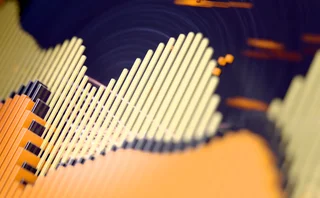
Structurers - House of the year, commodities - Barclays Capital

Retail investors' interest in gaining exposure to commodity price performance has soared on the back of rising oil and metals prices, resulting in a flood of commodity-linked new issues from structured product houses across the globe. Differentiating yourself in such an overcrowded market isn't easy, but Barclays Capital, by combining a strong energy and metals trading business with proven structuring expertise, has done just that.
"The investment we've made in our commodities business over the last three years has been exceptional," says Giles Rothwell, London-based global head of investor solutions.
Barclays began seriously expanding its commodity trading business in 2000 when Benoit de Vitry, ex BNP Paribas, Merrill Lynch and CIBC, joined as global head of commodities. The bank always had a leading metals-trading business, but under de Vitry it gradually built up its presence in energy as well. The expansion and integration of the commodities business with the rest of the investment bank meant Barclays Capital, now with a substantial trading book in all major commodities, was in a leading position to take advantage of the boom in commodity prices and subsequent commodity-linked products.
The result of this good fortune, mixed with sound strategic thinking, is that Barclays Capital is now one of the leading issuers of commodity-linked notes, and in particular hybrid structures. Rothwell estimates the bank has transacted around $2.5 billion worth of structured notes this year. "Everything has just come together," he says. "The demand from the client base is there and we've got the platform in place to absorb that demand, so it has just been a case of coming up with the product ideas."
Most of the demand for commodity-linked products has come from Europe, but more recently the bank says it has seen growing demand from the US and Asia, including Japan. Most investors are looking for relatively simple, plain vanilla index products or tailor-made baskets, the most popular being variations of oil, gold, silver nickel, aluminum and copper. But the bank says it has also seen demand for products linked to coal and gasoline.
A US product launched recently by the bank was a five-year note, principal-protected at 105% and linked to a basket (with a 100% participation rate) where the exposure was split evenly between global indexes (the S&P 500, DJ Eurostoxx 50, FTSE 100 and Nikkei 225) and a clutch of commodity exposures (aluminium, copper, nickel, zinc, Brent crude oil and natural gas). The note pays the better of 5% or 100% of the appreciation of the basket.
Barclays has also had success selling hybrids in Europe. In Germany, for example, its Rohstoff Protect Zertifikat appeared on the market in September. This is a six-year note, 100% principal-protected and linked to a basket with exposure to WTI crude, gold, silver, copper nickel and lead.
But perhaps one of the bank's most daring products from this year is its Guaranteed Diversified China Bond, which was launched in July. This is a three-year, capital-protected structure designed to track the performance of copper, nickel, lead and zinc, combined with exposure to the FTSE Xinhua China 25 equity index, which measures the performance of the countries largest companies. The underlying exposure is split 60% commodities and 40% equity. The rationale behind the product is that as China's economy grows, so too will demand for base metals, thereby driving up commodity prices. "There's a story with China and the growth prospects there, so this just seemed like a very timely product to put together. Also, investors increasingly want to diversify their underlying asset portfolios, so we gave them an interesting underlying that lets them do that," Rothwell says, adding that the bank sold around $40 million worth of the product.
WHY BARCLAYS CAPITAL WON
Barclays Capital is now one of the leading issuers of commodity-linked notes, and in particular hybrid structures. The bank estimates that it has transacted around $2.5 billion worth of structured notes this year and its commitment to launching innovative commodity-linked products is second to none.
Only users who have a paid subscription or are part of a corporate subscription are able to print or copy content.
To access these options, along with all other subscription benefits, please contact info@risk.net or view our subscription options here: http://subscriptions.risk.net/subscribe
You are currently unable to print this content. Please contact info@risk.net to find out more.
You are currently unable to copy this content. Please contact info@risk.net to find out more.
Copyright Infopro Digital Limited. All rights reserved.
As outlined in our terms and conditions, https://www.infopro-digital.com/terms-and-conditions/subscriptions/ (point 2.4), printing is limited to a single copy.
If you would like to purchase additional rights please email info@risk.net
Copyright Infopro Digital Limited. All rights reserved.
You may share this content using our article tools. As outlined in our terms and conditions, https://www.infopro-digital.com/terms-and-conditions/subscriptions/ (clause 2.4), an Authorised User may only make one copy of the materials for their own personal use. You must also comply with the restrictions in clause 2.5.
If you would like to purchase additional rights please email info@risk.net
More on Awards
Market liquidity risk product of the year: Bloomberg
Bringing clarity and defensibility to liquidity risk in a fragmented fixed income market
FRTB (SA) product of the year: Bloomberg
A globally consistent and reliable regulatory standardised approach for FRTB
Best use of cloud: ActiveViam
Redefining high-performance risk analytics in the cloud
Best use of machine learning/AI: ActiveViam
Bringing machine intelligence to real-time risk analytics
Collateral management and optimisation product of the year: CloudMargin
Delivering the modern blueprint for enterprise collateral resilience
Flow market-maker of the year: Citadel Securities
Risk Awards 2026: No financing; no long-dated swaps? “No distractions,” says Esposito
Pricing and analytics: fixed income – Quantifi
Quantifi delivers high-performance, transparent and adaptable pricing and risk analytics for fixed income and credit markets
Derivatives house of the year: Citi
Risk Awards 2026: Rev up, RWAs down, as US bank gets back on track (with added XiNG and XiP)







